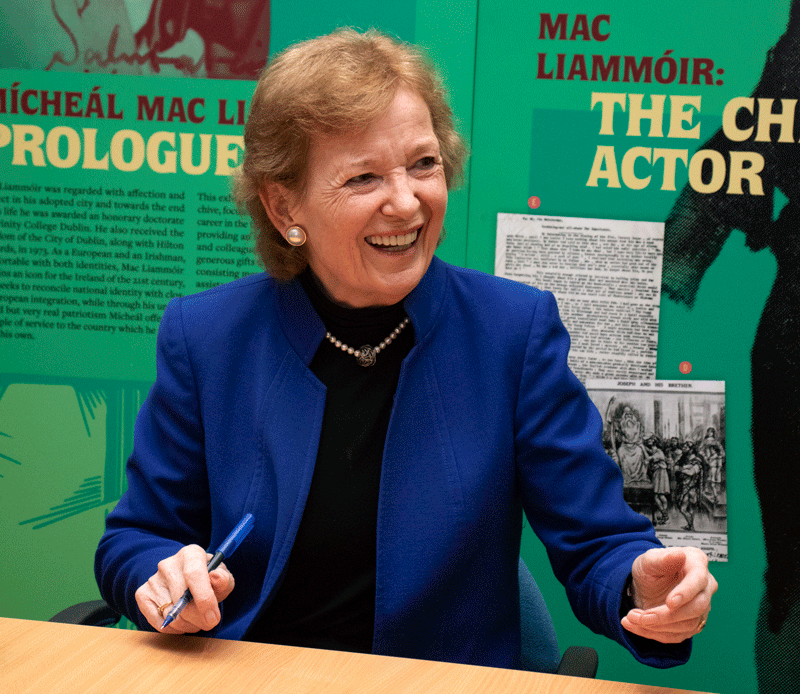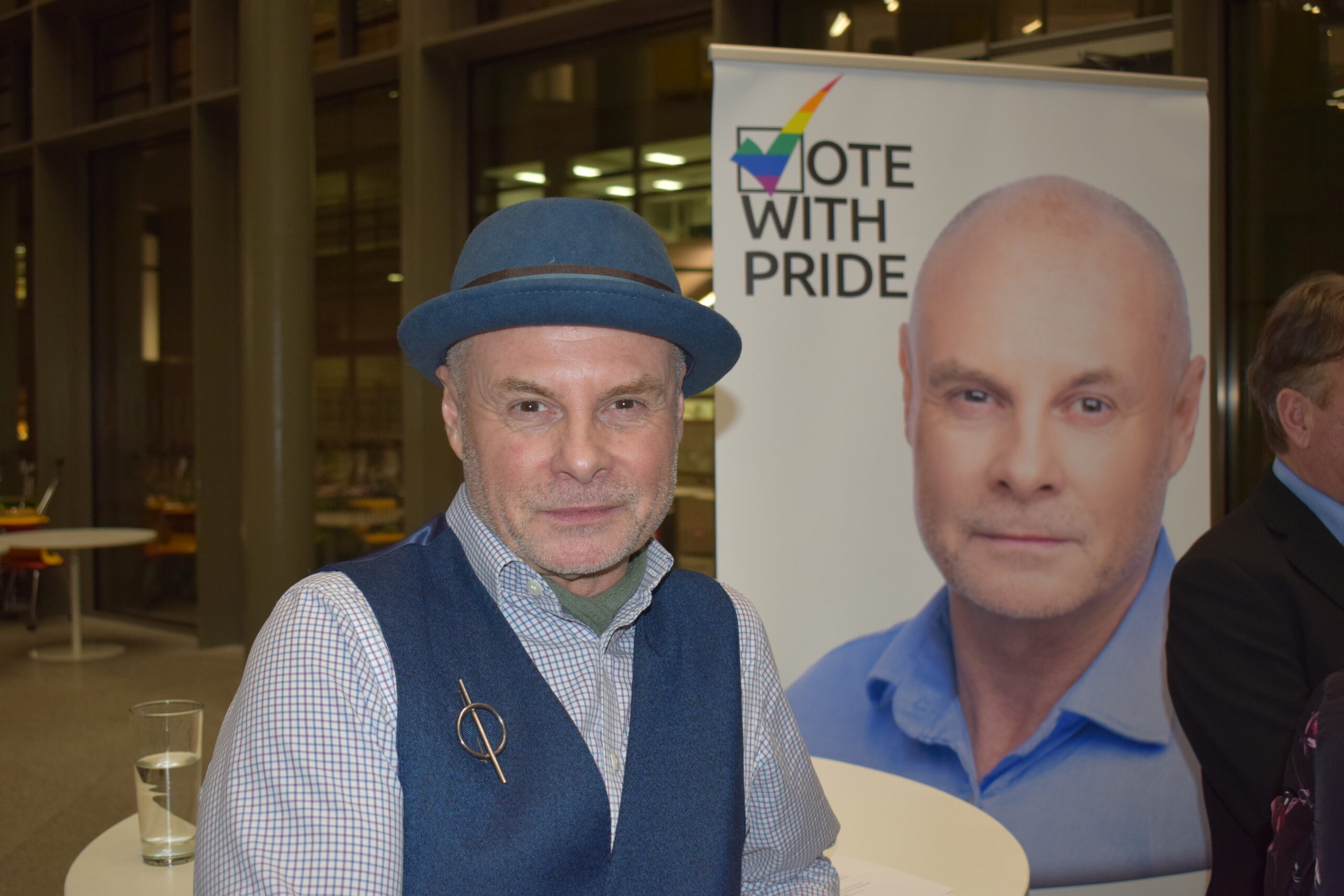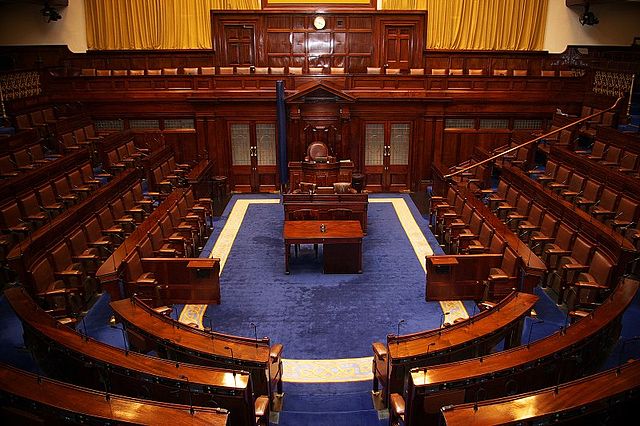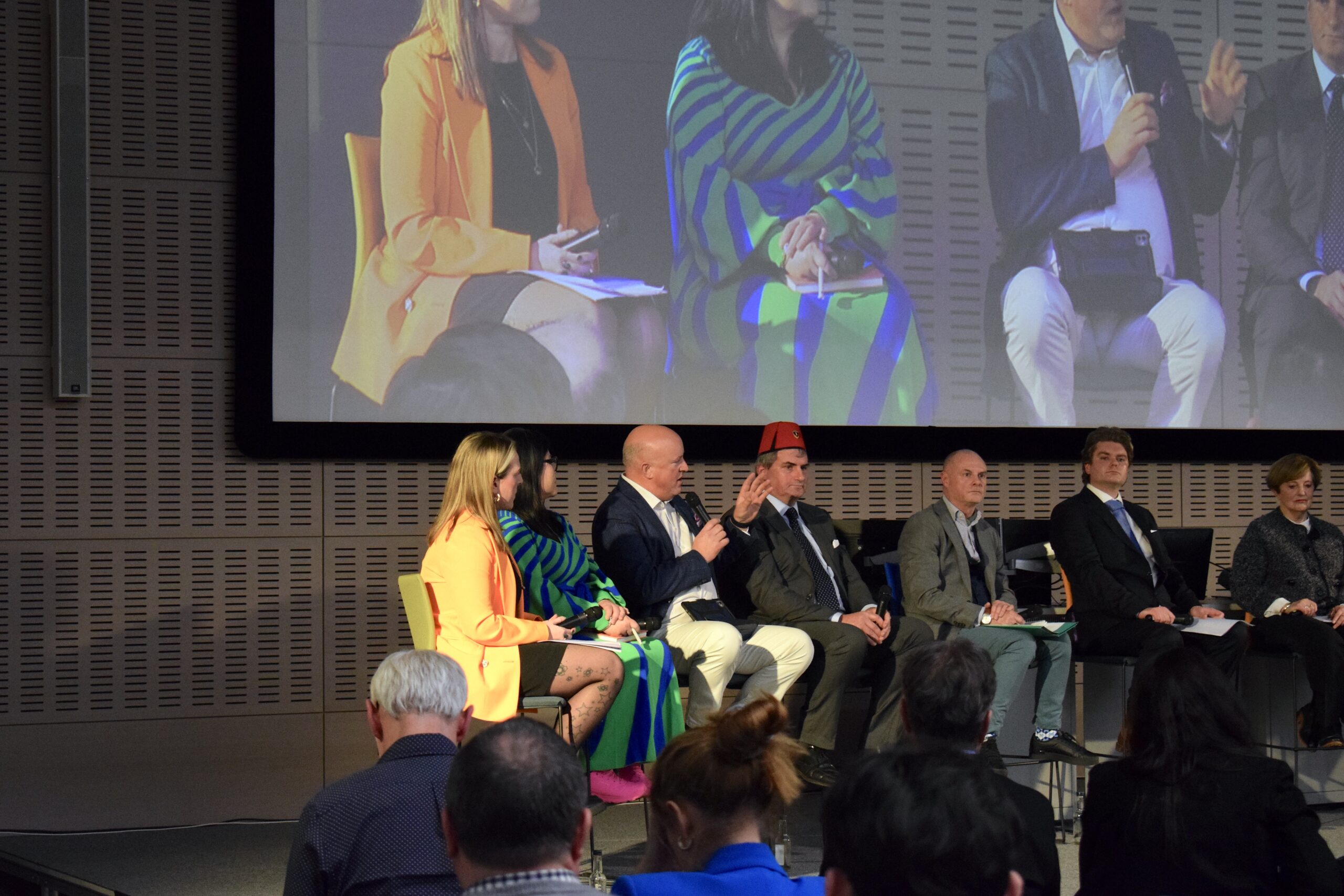
Last night, the crowd hummed with excitement as they eagerly waited to hear former president Mary Robinson speak about her new book, Climate Justice: Hope, Resilience and the Fight For A Sustainable Future. The launch, which had sold out virtually straight away, was organised by the book’s publisher, Bloomsbury, together with Dublin UNESCO City of Literature and was held in the Dublin City Library and Archive on Pearse St.
The room in which the crowd gathered was small. The level of intimacy was a novelty, as one attendee rightly noted that Robinson “could have filled a stadium”. The audience, which consisted mostly of women from a range of ages, was so engaged in animated conversation that, ironically, they didn’t even notice Robinson as she quietly entered the room and made her way up to the modest platform.
After a brief introduction from the acting Dublin City librarian, Brendan Teeling, in which he recalled Robinson’s long list of achievements and accomplishments, Doireann Ní Bhriain began her interview. Ní Bhriain briefly recalled the nation’s extraordinary feeling of pride and anticipation of change when Robinson was elected the first female president of Ireland. Yet Ní Bhriain moved on quite quickly, noting that like Robinson, who was always moving forward and actively progressing, she would not linger on the past.
The book, Robinson explained, is her effort to educate the public on climate change through the medium she thinks most powerful: storytelling. Climate Justice consists of twelve first-hand accounts of the devastating effects of climate change and extreme weather on various communities. Nine of the twelve stories are from women. This is because, Robinson continued, in developing countries and poor communities in developed countries, it is usually women who bear the brunt of these disasters.
The first story in Climate Justice is that of Constance Okollet, a Ugandan farmer whom Robinson first met in 2009 at a climate hearing held by Oxfam. Okollet and other farmers attended the panel to give testimony to the effects of climate change on their communities. Robinson told the audience of her own ignorance back then, as when she first met Okollet she had joked: “Don’t all farmers complain about the weather?” In response, Okollet had stood up, as she always does when she has something important to say. At this point in her anecdote, needing to express the gravity of the situation, Robinson herself rose to her feet and explained to the audience that what had happened to Okollet’s village was “outside of their experience”. When Robinson sat down again she was visibly emotional. She reiterated the crisis: a village with a collective memory stretching back two hundred years has no experience to help them through this disaster.
As the talk progressed, Robinson’s feminist perspective infused the conversation. She effortlessly intermarried feminist issues such as a lack of family planning clinics, sexual education and menstrual products into discussions of overpopulation and its effect on climate change.
Ní Bhriain asked Robinson how she could continue to tackle such intense issues without “falling into despair”. Robinson credited her friend Archbishop Desmond Tutu, or “Arch” as he is lovingly known by Robinson and others, a detail that provoked laughter from the enthralled crowd. Robinson recalled an interaction Tutu once had with an American journalist. When asked why he was always so optimistic, Tutu replied that he was not in fact an optimist, but a “prisoner of hope”. To be a prisoner of hope, Robinson explained, was not to see the glass as half full, but to always see something to fight for.
As the discussion wound to a close and the audience reluctantly filtered out into the reception area, conversations could be overheard marvelling at Robinson’s eloquence, her incredible strength and resilience and the legacy she has carved out for herself as a tireless prisoner of hope.






